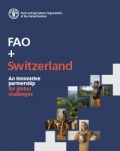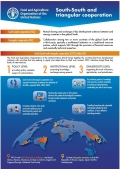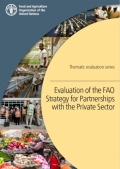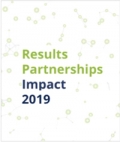Документация

Resource Partners
04 Nov 2019
This report aims to provide an overview of Switzerland's strong partnership and valuable contribution to the work of FAO in recent years, bringing together their individual set of unique skills to the table to help resolve myriad challenges relating to food security, nutrition, resilience and sustainability. Working in close partnership with resource partners is the only way we can move forward and achieve a world where hunger no longer exists.
South-south Cooperation
30 Oct 2019
As of 2019, FAO has approximately 40 South-South and Triangular Cooperation (SSTC) projects in more than 90 host countries. Moreover, different Trust Funds (TFs) have been established, partnering with countries such as Brazil, the People’s Democratic Republic of China, Japan, Mexico, Morocco and the Republic of Korea.
FAO’s SSTC Gateway is a platform designed to facilitate knowledge and partnership brokering for SSTC in the agriculture and rural development sector. The platform comprises good practices, technical guidance documents, videos from the agriculture and agri-food sector, a SSTC expertise database and allows users to submit SSTC-related inquiries.
This scale-up note is part of a...
Private Sector
22 Oct 2019
At the time of its adoption in 2013, FAO’s Strategy for Partnerships with the Private Sector contributed to more private sector collaboration and resulted in several formal agreements being signed. Following the adoption of the 2030 Agenda, and the SDGs, several UN organizations shifted gear and established deeper and more proactive partnerships with the private sector. In this context, FAO has not positioned itself to fully capitalize on such potential and maintains a more conservative approach. Meanwhile, those partnership formalized by FAO with private sector entities have yielded positive but limited results, and appear to have been more opportunistic and...
Civil Society
30 Sep 2019
The purpose of the Monitoring Framework is to serve as an instrument for cities and urban food stakeholders to identify food-related policy and programme priorities. The Framework also serves to illustrate to what extent “desired changes” are happening and/or how impactful such changes are. If measured periodically, the Framework can be used to evaluate gaps in policy advancement and resource mobilization as well as reveal overall urban food systems improvement.

Resource Partners
23 Sep 2019
This second edition of FAO’s resource mobilization annual report, Resources, Partnerships, Impact – 2019, seeks to communicate, in a transparent and accountable way, who FAO is, what we do, and how we work with diverse United Nations and other partners to achieve our goals.
